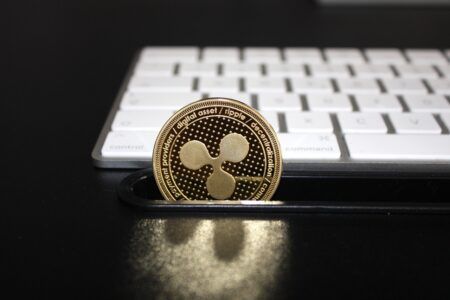On Saturday (October 15), Coinbase Co-Founder and CEO Brian Armstrong talked about his passion for “accelerating science and tech”, something which he talked about during his recent appearance on episode #627 of “The Tim Ferriss” podcast.
Armstrong went on to say:
“For the avoidance of doubt, I intend to be CEO of Coinbase for a very long time and I remain super bullish on crypto and Coinbase. I’m fully dedicated to growing our business and advancing our mission, but I am also excited to contribute in a different way.“
Earlier this month, the Coinbase CEO announced that a documentary film named “Coin” about his firm would be released on multiple streaming services, including YouTube, iTunes, and Amazon Prime, on October 7.
The film, which is one and 28 minutes long, is directed by ten-time Emmy®-winning filmmaker Greg Kohs, and it “chronicles the rise of a visionary founder in crypto who harnesses the power of this emerging technology to promote a mission of global economic freedom.”
The cast includes Brian Armstrong, Vitalik Buterin, Hayden Adams, Alex Gladstein, Brian Brooks, and David Chaum.
On October 4, Armstrong took to Twitter to say the following about the film:
“we’ve been working with director Greg Kohs on a documentary about cryptocurrency and Coinbase over the last three years, and it will be coming out this Friday… We gave Greg and his team unprecedented access inside the company, showing the crazy ups and downs of building a tech startup all the way to us becoming a public company. He shows it all – the good, bad, and ugly… I agreed to do this documentary because I wanted to demystify what it takes to build a tech startup and encourage more people to start companies. I also wanted to demystify crypto…
“The world tends to either vilify founders or put them on a pedestal. Neither is true – they’re just regular people trying to make something that people want. And everyone working in crypto believes it can create a more fair, free, and global financial system… As the saying goes, starting a company is like chewing glass and staring into the abyss. It takes incredible determination and a bit of luck.
“But if you succeed, you can change the world, and generate enormous value for millions of people… My belief is that technology is the best lever we have to solve the world’s problems and improve the human condition, and I want to encourage more people to start tech companies. So I decided to pull back the curtain and show people what it’s really like…
“I got in touch with Greg after seeing another film he created called AlphaGo, about DeepMind’s program that defeated the Go champion, Lee Sedol. It was a powerful story, and it’s what convinced me to trust him to tell our story… hope you all go and see the film – and that policy makers see it as well. I believe it will help advance the cause of cryptocurrency, showing the motivations of the many hard working people driving this industry forward.“
In late July, while speaking in an interview with computer scientist Lex Fridman, Armstrong explained how his company decides which altcoins to add to the platform. He said that the company begins by evaluating an altcoin’s status as a security:
“We basically have a test of legality. We check: ‘Do we believe this is a security?’ If so, it can’t be listed on Coinbase. And there’s a very rigorous process we go through for that.
“Just currently the way the laws are in the US, you can’t do that. We acquired a broker-dealer license from the SEC. We’re trying to work with them to get that operational and hopefully one day, we can trade real crypto securities but today, that’s not possible in the US.“
Next on Armstrong’s list of evaluation criteria was security:
“Then we look at the cybersecurity of the crypto asset. Do we think there’s some flaw in the smart contract, or a way that somebody could manipulate it without the customers’ permission?
“We look at some compliance pieces to it as well, like the actors behind it and any kind of criminal history and things like that. If we believe it meets our listing standards, basically this test of legality and everything for customer protection, then we want to list it because we want the market at that point to decide...
“It’s kind of like Amazon or something like that where a product might have three stars or it might have five stars, but if it starts to get one star consistently, it’s probably fraudulent or defective or something and maybe Amazon will remove it. Otherwise, you want to let the market decide what these things are.”








